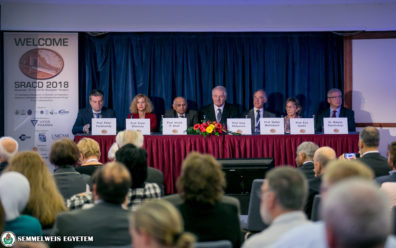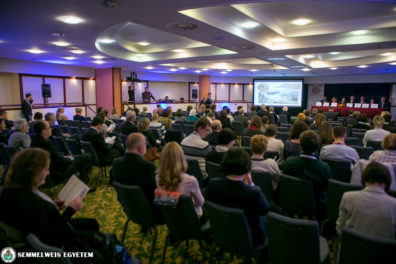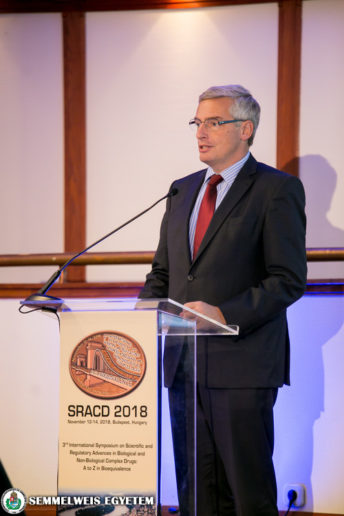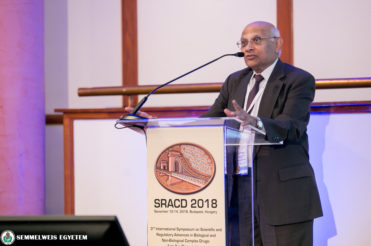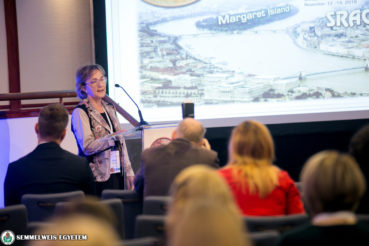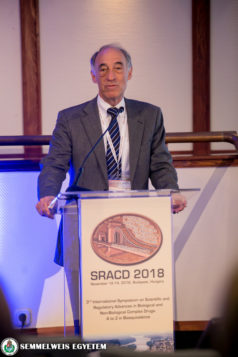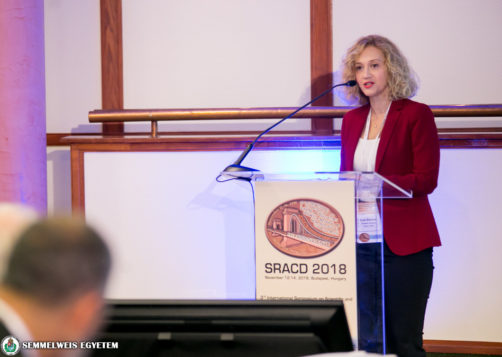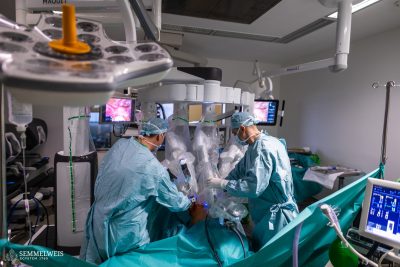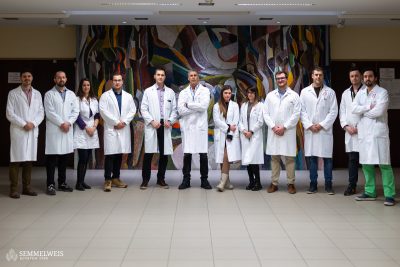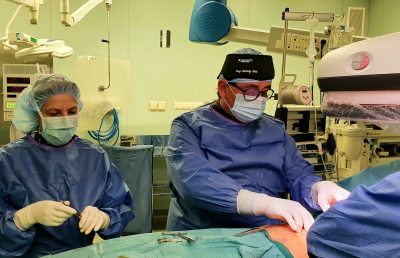The substitutability of biological and non-biological complex drugs, that is, the examination and regulation of biosimilarity following the patent expiration of the products, was one of the main topics of the international conference on drug research, which was organized for the third time by the Department of Pharmaceutics of Semmelweis University. This year, more than 240 participants came to the event from 43 countries from around the world.
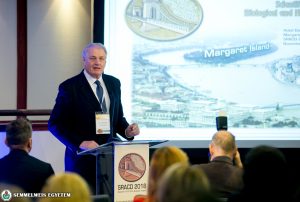 The event entitled “International Symposium on Scientific and Regulatory Advances in Biological and Non-Biological Complex Drugs: A to Z in Bioequivalence” has been organized for the third time in Budapest. Dr. Imre Klebovich, chief organizer and co-chair of the SRACD 2018 symposium, professor at the Department of Pharmaceutics, said that the event, as the third forum of a unique event series in Europe provides the opportunity to meet the leading researchers of original and generic drug development. The main focus of the conference is the examination of the similarities between biological and non-biological complex drugs. The symposium is also a unique opportunity to discuss the latest regulatory issues of bioequivalence and biosimilarity, he said. He added that this year’s highlighted interest indicates the actuality of this topic today, and its significance is emphasized by the fact that the patron was Dr. Miklós Kásler, Minister of Human Resources.
The event entitled “International Symposium on Scientific and Regulatory Advances in Biological and Non-Biological Complex Drugs: A to Z in Bioequivalence” has been organized for the third time in Budapest. Dr. Imre Klebovich, chief organizer and co-chair of the SRACD 2018 symposium, professor at the Department of Pharmaceutics, said that the event, as the third forum of a unique event series in Europe provides the opportunity to meet the leading researchers of original and generic drug development. The main focus of the conference is the examination of the similarities between biological and non-biological complex drugs. The symposium is also a unique opportunity to discuss the latest regulatory issues of bioequivalence and biosimilarity, he said. He added that this year’s highlighted interest indicates the actuality of this topic today, and its significance is emphasized by the fact that the patron was Dr. Miklós Kásler, Minister of Human Resources.
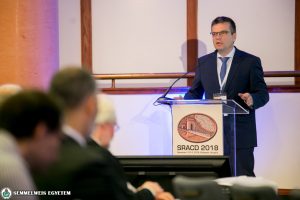 Dr. Péter Ferdinandy, Vice-Rector for Scientific Affairs and Innovation at Semmelweis University, emphasized in the opening ceremony that drug development is a common social work these days, which involves many participants, including the pharmaceutical industry, contract research organizations, regulatory authorities and scientists. This conference is a unique opportunity to bring these participants together, he emphasized. He added that the event enhances the prestige of both Semmelweis University and Hungary and contributes to the institution’s goal of becoming one of the top 100 universities in the world in ten years and becoming a leader in the fields of science and innovation.
Dr. Péter Ferdinandy, Vice-Rector for Scientific Affairs and Innovation at Semmelweis University, emphasized in the opening ceremony that drug development is a common social work these days, which involves many participants, including the pharmaceutical industry, contract research organizations, regulatory authorities and scientists. This conference is a unique opportunity to bring these participants together, he emphasized. He added that the event enhances the prestige of both Semmelweis University and Hungary and contributes to the institution’s goal of becoming one of the top 100 universities in the world in ten years and becoming a leader in the fields of science and innovation.
On behalf of the Hungarian National Institute of Pharmacy and Nutrition (OGYÉI), Director-General Dr. Mátyás Szentiványi recalled that the 50-year-old institute has always been actively involved in the regulatory issues of new medicines, and this is the case now for biological and non-biological drugs as well.
The other co-chair of the symposium, Prof. Vinod P. Shah, member of the Non-Biological Complex Drugs (NBCD) Working Group, Scientific Secretary of the International Pharmaceutical Federation (FIP), former President of the American Association of Pharmaceutical Scientists (AAPS), honorary doctor of Semmelweis University, encouraged those present to be active participants at the conference and thus increase their knowledge of biological and non-biological complex drugs and nanomedicine.
Prof. Erem Bilensoy, President of the European Federation for Pharmaceutical Sciences (EUFEPS), emphasized: the conference is a good example of the need for regulation to go hand-in-hand with the development of pharmaceutical sciences. This is necessary for complex drugs to be safe and effective, and ultimately reach the patients as well.
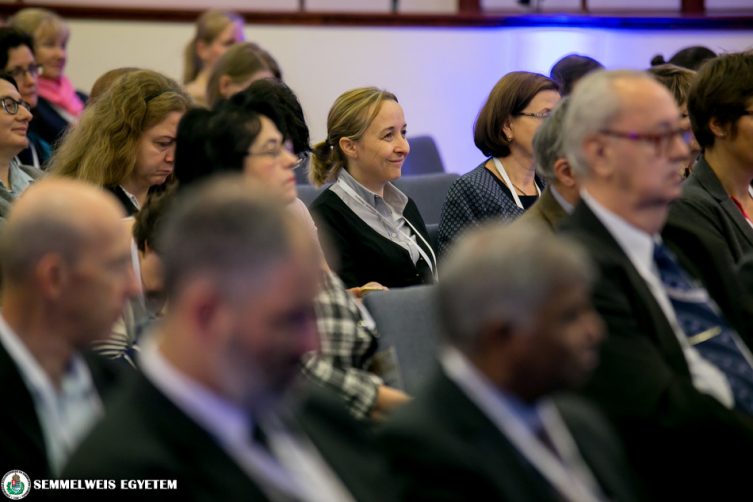 Dr. Éva Szökő, President of the Pharmaceutical Permanent Committee of the Hungarian Academy of Sciences and the Hungarian Society for Pharmaceutical Sciences, said that the latest drug development results have increased the complexity of the structures of agents and drug delivery system. Thus, scientific evidence and dialogue are needed on how new drugs, their equivalence and similarity can be evaluated. This event is a perfect platform to discuss these topics, she said.
Dr. Éva Szökő, President of the Pharmaceutical Permanent Committee of the Hungarian Academy of Sciences and the Hungarian Society for Pharmaceutical Sciences, said that the latest drug development results have increased the complexity of the structures of agents and drug delivery system. Thus, scientific evidence and dialogue are needed on how new drugs, their equivalence and similarity can be evaluated. This event is a perfect platform to discuss these topics, she said.
Prof. Stefan Mühlebach, third co-chair of the symposium, President of the Non-Biological Complex Drugs (NBCD) Working Group, also stressed the importance of active participation and expressed his hope that everyone would return home with new and useful knowledge.
At the end of the opening ceremony Dr. Tamás Paál, professor emeritus of the University of Szeged, former director general of the Hungarian National Institute of Pharmacy and Nutrition, who was also a university professor at Semmelweis University, and Dr. László Endrényi, professor at the University of Toronto and honorary doctor of Semmelweis University, were specially greeted by Dr. Imre Klebovich and Dr. Péter Ferdinandy. They also congratulated Dr. Vinod Shah, who has recently received the Global Leader Award from the American Association of Pharmaceutical Scientists (AAPS).
At the event, the world’s leading researchers discussed topics such as different types of biosimilar and therapeutic equivalence, new possibilities and regulations of bioanalytic, protein structural spectroscopic, special formulation testing, requirements of biological and non-biological complex drug testing in 12 sessions, 29 plenary sessions and panel discussions. Special emphasis was placed on the official and clinical aspects of these. The Pharmaceutical Permanent Committee of the Hungarian Academy of Sciences and the Hungarian Society for Pharmaceutical Sciences were also involved in the organization of the symposium.
Tamás Deme
Photo: Attila Kovács – Semmelweis University
Translation: Diána Módos
